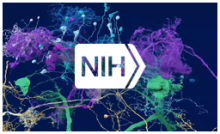
The Notice of Special Interest reflects participation by additional NIH Institutes and Centers, including the BRAIN Initiative. The deadline for letters of intent to apply for a partnership award is June 13, 2022, and applications for projects are due by July 13, 2022.
In line with its commitment to support workforce development at all stages, the NIH BRAIN Initiative recently signed on to participate in the Science Education Partnership Award (SEPA) program (see NOT-HG-22-017). The SEPA program, which is supported by the NIH, funds pre-kindergarten through grade 12 science, technology, engineering, and mathematics (STEM) and Informal Science Education (ISE) educational projects. The program supports our future workforce by increasing diversity in and promoting better understanding of NIH biomedical, behavioral, and clinical research for public health.
The notice broadens the list of participating Offices, Institutes, and Centers for the SEPA R25 Research Education Program (PAR-20-153) which supports research education activities in the mission areas of the NIH. BRAIN awardees are encouraged to propose educational projects that focus on any area of BRAIN-funded research that benefits society and help create a diverse, capable, and health-literate workforce.
Projects are not limited to what students learn in the classroom – activities can also be in venues like science museums and education centers. Applicants are encouraged to propose project topics that aren’t covered in existing school or community curriculum. The SEPA program is particularly interested in projects that focus on:
-
Courses for skills development – concentrating on a specific discipline, skill, or research area such as neuroscience, brain development, or memory.
-
Research experiences – allowing hands-on exposure to research collection methods and skills not provided by traditional classroom activities.
-
Mentoring activities – providing diverse mentors and role models for students to learn from.
-
Curriculum or methods development – proposing new ways of teaching or creating new learning resources to challenge students in different ways.
-
Outreach – distributing resources and materials about biomedical, behavioral, and clinical research findings through public outreach activities to educate students.
Descriptions of funded SEPA projects can be found on the SEPA website. A few examples of previously funded projects include: interactive family learning in support of early brain development, a program to inspire future veterinarians using a veterinary STEM ecosystem, and professional development in science and ethics for high school teachers.
The SEPA program has also emphasized interest in a few new areas including:
-
Educational activities where students can learn about data science and informatics through research datasets.
-
Math and reading content in projects that target pre-kindergarten – 8th grade students.
-
Existing SEPA programs used in different ways, in new locations or with new populations.
Letters of intent to apply are due by June 13, 2022, and project applications are due by July 13, 2022. Applicants must conform to all NOFO requirements and follow the research instructions in the SF424 (R&R) Application Guide.
More details about application requirements can be found in the NOFO. For questions or further inquiries, please contact your Institute or Center representative (see Agency Contacts).
